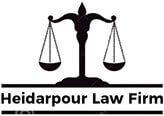Mistakes to Avoid When Filing for Bankruptcy

Filing for bankruptcy can be an emotional experience. If you are already stressing about losing your assets or a debt that you find hard to pay, you do not want to get stressed further with the law by trying to be malicious.
An instance of malice is when you try to hide some property. If you get caught hiding any assets, you will face consequences that include fines of up to $500,000 and a jail term of up to five years. Below are some mistakes to completely avoid when you are filing for bankruptcy.
Adding Debt to Your Credit Card
The moment you decide to file for bankruptcy, you should cease to use your credit card. The reason for this is that your credit card company will get a notification that you are filing for bankruptcy when you decide to file for one.
If you know you will file for bankruptcy, avoid adding debt to your credit cards two to three months before filing for bankruptcy. The consequences may be that the creditor could refuse to reduce or eliminate what you owe them. The creditor may also ask you to pay the debts of your purchases, or they could file for lawsuits to prevent the debt from getting discharged or accuse you of fraud.
Changing Ownership of Your Assets
Chapter 7 bankruptcy requires an individual’s non-exempted assets to get liquidated, and the trustees should use the money to pay off debts. People who file for this type of bankruptcy may get tempted to change or transfer ownership of their assets to their friends or relatives. Such a move is dishonest, and the bankruptcy trustee can consider it fraudulent and cause you more trouble.
Chapter 7 bankruptcy can exempt those assets you want to transfer or change ownership. If the assets get exempted, they will not get liquidated, and you will not lose them.
Failing to Hire a Lawyer and Filing the Wrong Bankruptcy
A bankruptcy attorney understands the diverse bankruptcy laws and will give you the right advice on what to do. For instance, if you are filing for personal bankruptcy, an attorney will help you get exemptions for some of your assets, and you will keep them.
If you get tempted to file for bankruptcy by yourself to save money on the attorney’s fee, you might file for the wrong bankruptcy. If you file for the wrong bankruptcy, you will not get the expected outcome. You can file for three types of bankruptcy: Chapter 7, chapter 11, and chapter 13.
Chapter 7 bankruptcy involves liquidating non-exempted assets and paying off creditors with that money. Chapter 11 and 13 involves restructuring your debt for you to pay it within 3 to 5 years. A bankruptcy attorney is well conversant with the nitty-gritty of these types of bankruptcy and will help you file for the one that best suits you.
Repaying Loans to Certain Creditors
If you owe debts to your family, friends, or certain organizations, you might get tempted to repay some debts say those owed to friends and family. However, if you want to file for bankruptcy, you are not supposed to repay any creditors regardless of who they are to you.
Paying off some creditors would portray that you have preferential treatment. Preferential treatment is not right, and if you treat all the creditors equally, you can get covered by chapter 7 bankruptcy, and chapter 13 will allow you to pay back with the repayment plan. With equal treatment, you may end up paying creditors less than what you would pay with preferential treatment.
Filing for bankruptcy can be a delicate process, and you must proceed cautiously. If you do not avoid committing the mistakes above, you could fail to get your intended outcome. Contact Heidarpour Law Firm, PLLC to get the best bankruptcy guidance from our experienced lawyers.
